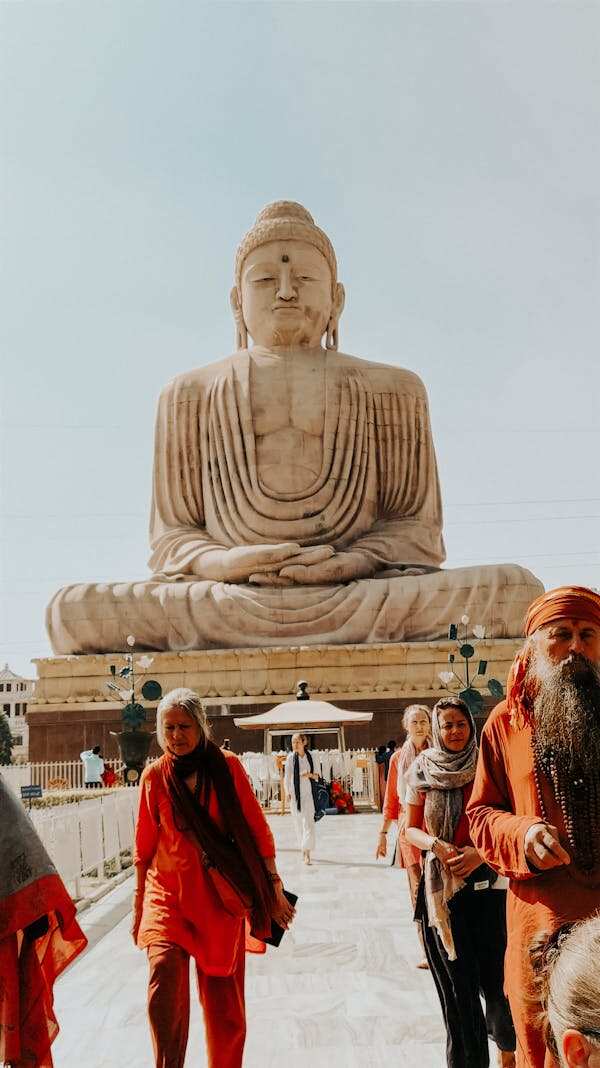Rawat said countries like Nepal and Bhutan "have to be inclined towards India because of geography".
Chief of Army Staff General Bipin Rawat on Sunday said countries like Nepal and Bhutan "have to be inclined towards India because of geography".
In his reply to a query on the growing closeness between Nepal and China, Rawat said ties between nations change along with the global scenario.
"Countries like Nepal and Bhutan have to be inclined towards India because of geography," Rawat said on the sidelines of the closing ceremony of the Bay of Bengal initiative for Multi-Sectoral Technical and Economic Cooperation-Field Training Military Exercise (BIMSTEC-MILEX).
"Geography favours inclination towards India and as far as alliance (with China) is concerned, it is a temporary thing," he added.
Citing the example of Pakistan and the US, the general claimed that the dynamics of ties between nations keep changing along with the scenario at the global level.
"The best example of this is the relation between America and Pakistan. It is not the same as what it used to be 70 years ago.
Therefore, we need not be bothered about all these issues. We need to concentrate on how to keep our country strong," he said.
Rawat said the leadership in India believed in developing relations with its neighbours.
"We are a bigger country and if we take the lead, everybody will follow suit. That is why we stepped into this (by organising the military exercise)," he said.
He claimed that India looked at China as a competitor because of "economics".
"They (China) are looking for a market and so are we. There is competition. Whoever does it better will win the race," Rawat said.
Another senior army officer said any country desiring economic growth was bound to explore bilateral and multi-lateral ways of cooperation especially with a stronger nation like China.
However, the countries that have taken financial assistance from China are realising that "nothing comes for free".
"There is caution in the minds of those who have taken money from them (China) that nothing comes for free," he said.
Addressing a press conference on Sunday evening, Rawat said terrorism was becoming a global phenomenon and India's neighbourhood was one of the most affected regions.
"Particularly in our neighbourhood, all the BIMSTEC nations are affected by terrorism. Terrorists operate in a trans-national scenario. It is not that they do not have linkages with one another," Rawat said.
"The purpose of MILEX 2018 is to coordinate on these issues, understand and learn from each other's best practices. Intelligence sharing is one of them," he said.
On whether the issue of illegal immigration would be added to the BIMSTEC discussion in future, Rawat said it was not a new phenomenon.
"Migration always happens from an economically weaker nation to a stronger nation. Therefore, equal growth is important. This phenomenon is not going to end unless there is equitable and good distribution of growth," said Rawat.
Minister of State for Defence Subhash Bhamre said it was unfortunate that some countries were propagating the "good terrorism and bad terrorism" theory.
"Unfortunately some countries look at it like that. They themselves are the victims of this menace. We must understand that terrorism is terrorism and we should unite and fight the menace," Bhamre said, adding that MILEX 2018 was a step in that direction.
Earlier, Bhamre clarified that Nepal had participated in the exercise by sending its observers.
"In all the previous summits they (Nepal) have participated. This time it was a military exercise and this is the same period when their command changed (a new General taking over as CoAS of the Nepal Army)," Bhamre said.
"They (Nepal) have sent their observers so there was participation from them. We need not look at any other angle," the minister said.
While contingents of India, Sri Lanka, Bangladesh, Myanmar and Bhutan took part in the week-long military exercise, Nepal and Thailand skipped it and sent observers instead.
Among those who attended the closing ceremony at the Aundh Military Station here included Shahidul Islam, secretary general of BIMSTEC, services chiefs of BIMSTEC nations, and senior Indian military officers among others.
The tactical drills showcased during the validation exercise included a hostage rescue drill by insertion of troops from helicopters, a room intervention as well as house-clearing drill as part of a "cordon and search" operation, a raid on a "terrorist hideout" and neutralisation of improvised explosive devices (IEDs).
![submenu-img]() Meet Gautam Adani’s ‘right hand’, used to work as teacher, he’s now Rs 1600000 crore…
Meet Gautam Adani’s ‘right hand’, used to work as teacher, he’s now Rs 1600000 crore…![submenu-img]() Meet actor who worked with Amitabh Bachchan, Aishwarya Rai, entered films because of a bus conductor, is now India's..
Meet actor who worked with Amitabh Bachchan, Aishwarya Rai, entered films because of a bus conductor, is now India's..![submenu-img]() Meet Bollywood star, who was a tourist guide, married 4 times, went bankrupt, his son died by suicide, then...
Meet Bollywood star, who was a tourist guide, married 4 times, went bankrupt, his son died by suicide, then...![submenu-img]() This actor made Sharmila Tagore forget her lines, once did film for Rs 100, could never be a superstar because..
This actor made Sharmila Tagore forget her lines, once did film for Rs 100, could never be a superstar because..![submenu-img]() Volkswagen Taigun GT Line, Taigun GT Plus launched in India, price starts at Rs 14.08 lakh
Volkswagen Taigun GT Line, Taigun GT Plus launched in India, price starts at Rs 14.08 lakh![submenu-img]() DNA Verified: Is CAA an anti-Muslim law? Centre terms news report as 'misleading'
DNA Verified: Is CAA an anti-Muslim law? Centre terms news report as 'misleading'![submenu-img]() DNA Verified: Lok Sabha Elections 2024 to be held on April 19? Know truth behind viral message
DNA Verified: Lok Sabha Elections 2024 to be held on April 19? Know truth behind viral message![submenu-img]() DNA Verified: Modi govt giving students free laptops under 'One Student One Laptop' scheme? Know truth here
DNA Verified: Modi govt giving students free laptops under 'One Student One Laptop' scheme? Know truth here![submenu-img]() DNA Verified: Shah Rukh Khan denies reports of his role in release of India's naval officers from Qatar
DNA Verified: Shah Rukh Khan denies reports of his role in release of India's naval officers from Qatar![submenu-img]() DNA Verified: Is govt providing Rs 1.6 lakh benefit to girls under PM Ladli Laxmi Yojana? Know truth
DNA Verified: Is govt providing Rs 1.6 lakh benefit to girls under PM Ladli Laxmi Yojana? Know truth![submenu-img]() Remember Abhishek Sharma? Hrithik Roshan's brother from Kaho Naa Pyaar Hai has become TV star, is married to..
Remember Abhishek Sharma? Hrithik Roshan's brother from Kaho Naa Pyaar Hai has become TV star, is married to..![submenu-img]() Remember Ali Haji? Aamir Khan, Kajol's son in Fanaa, who is now director, writer; here's how charming he looks now
Remember Ali Haji? Aamir Khan, Kajol's son in Fanaa, who is now director, writer; here's how charming he looks now![submenu-img]() Remember Sana Saeed? SRK's daughter in Kuch Kuch Hota Hai, here's how she looks after 26 years, she's dating..
Remember Sana Saeed? SRK's daughter in Kuch Kuch Hota Hai, here's how she looks after 26 years, she's dating..![submenu-img]() In pics: Rajinikanth, Kamal Haasan, Mani Ratnam, Suriya attend S Shankar's daughter Aishwarya's star-studded wedding
In pics: Rajinikanth, Kamal Haasan, Mani Ratnam, Suriya attend S Shankar's daughter Aishwarya's star-studded wedding![submenu-img]() In pics: Sanya Malhotra attends opening of school for neurodivergent individuals to mark World Autism Month
In pics: Sanya Malhotra attends opening of school for neurodivergent individuals to mark World Autism Month![submenu-img]() DNA Explainer: What is cloud seeding which is blamed for wreaking havoc in Dubai?
DNA Explainer: What is cloud seeding which is blamed for wreaking havoc in Dubai?![submenu-img]() DNA Explainer: What is Israel's Arrow-3 defence system used to intercept Iran's missile attack?
DNA Explainer: What is Israel's Arrow-3 defence system used to intercept Iran's missile attack?![submenu-img]() DNA Explainer: How Iranian projectiles failed to breach iron-clad Israeli air defence
DNA Explainer: How Iranian projectiles failed to breach iron-clad Israeli air defence![submenu-img]() DNA Explainer: What is India's stand amid Iran-Israel conflict?
DNA Explainer: What is India's stand amid Iran-Israel conflict?![submenu-img]() DNA Explainer: Why Iran attacked Israel with hundreds of drones, missiles
DNA Explainer: Why Iran attacked Israel with hundreds of drones, missiles![submenu-img]() Meet actor who worked with Amitabh Bachchan, Aishwarya Rai, entered films because of a bus conductor, is now India's..
Meet actor who worked with Amitabh Bachchan, Aishwarya Rai, entered films because of a bus conductor, is now India's..![submenu-img]() Meet Bollywood star, who was a tourist guide, married 4 times, went bankrupt, his son died by suicide, then...
Meet Bollywood star, who was a tourist guide, married 4 times, went bankrupt, his son died by suicide, then...![submenu-img]() This actor made Sharmila Tagore forget her lines, once did film for Rs 100, could never be a superstar because..
This actor made Sharmila Tagore forget her lines, once did film for Rs 100, could never be a superstar because..![submenu-img]() Mumtaz urges to lift ban on Pakistani artistes in Bollywood: ‘Woh log hum logon se...'
Mumtaz urges to lift ban on Pakistani artistes in Bollywood: ‘Woh log hum logon se...'![submenu-img]() Not Kiara Advani, but this actress was first choice opposite Shahid Kapoor in Kabir Singh, she rejected because...
Not Kiara Advani, but this actress was first choice opposite Shahid Kapoor in Kabir Singh, she rejected because...![submenu-img]() IPL 2024: Yashasvi Jaiswal, Sandeep Sharma guide Rajasthan Royals to 9-wicket win over Mumbai Indians
IPL 2024: Yashasvi Jaiswal, Sandeep Sharma guide Rajasthan Royals to 9-wicket win over Mumbai Indians![submenu-img]() IPL 2024: How can RCB still qualify for playoffs after 1-run loss against KKR?
IPL 2024: How can RCB still qualify for playoffs after 1-run loss against KKR?![submenu-img]() CSK vs LSG, IPL 2024: Predicted playing XI, live streaming details, weather and pitch report
CSK vs LSG, IPL 2024: Predicted playing XI, live streaming details, weather and pitch report![submenu-img]() RR vs MI: Yuzvendra Chahal scripts history, becomes first bowler to achieve this massive milestone in IPL
RR vs MI: Yuzvendra Chahal scripts history, becomes first bowler to achieve this massive milestone in IPL![submenu-img]() 'Yeh toh second tier ki bhi team nhi': Ramiz Raja slams Babar Azam and co. after 3rd T20I loss vs New Zealand
'Yeh toh second tier ki bhi team nhi': Ramiz Raja slams Babar Azam and co. after 3rd T20I loss vs New Zealand![submenu-img]() Mukesh Ambani's son Anant Ambani likely to get married to Radhika Merchant in July at…
Mukesh Ambani's son Anant Ambani likely to get married to Radhika Merchant in July at…![submenu-img]() India's most expensive wedding costs more than weddings of Isha Ambani, Akash Ambani, total money spent was...
India's most expensive wedding costs more than weddings of Isha Ambani, Akash Ambani, total money spent was...![submenu-img]() Meet Indian genius who lost his father at 12, studied at Cambridge, took Rs 1 salary, he is called 'architect of...'
Meet Indian genius who lost his father at 12, studied at Cambridge, took Rs 1 salary, he is called 'architect of...'![submenu-img]() Earth Day 2024: Google Doodle features aerial photos of planet's natural beauty, biodiversity
Earth Day 2024: Google Doodle features aerial photos of planet's natural beauty, biodiversity![submenu-img]() Meet India's first billionaire, much richer than Mukesh Ambani, Adani, Ratan Tata, but was called miser due to...
Meet India's first billionaire, much richer than Mukesh Ambani, Adani, Ratan Tata, but was called miser due to...






































)




)
)
)
)
)
)